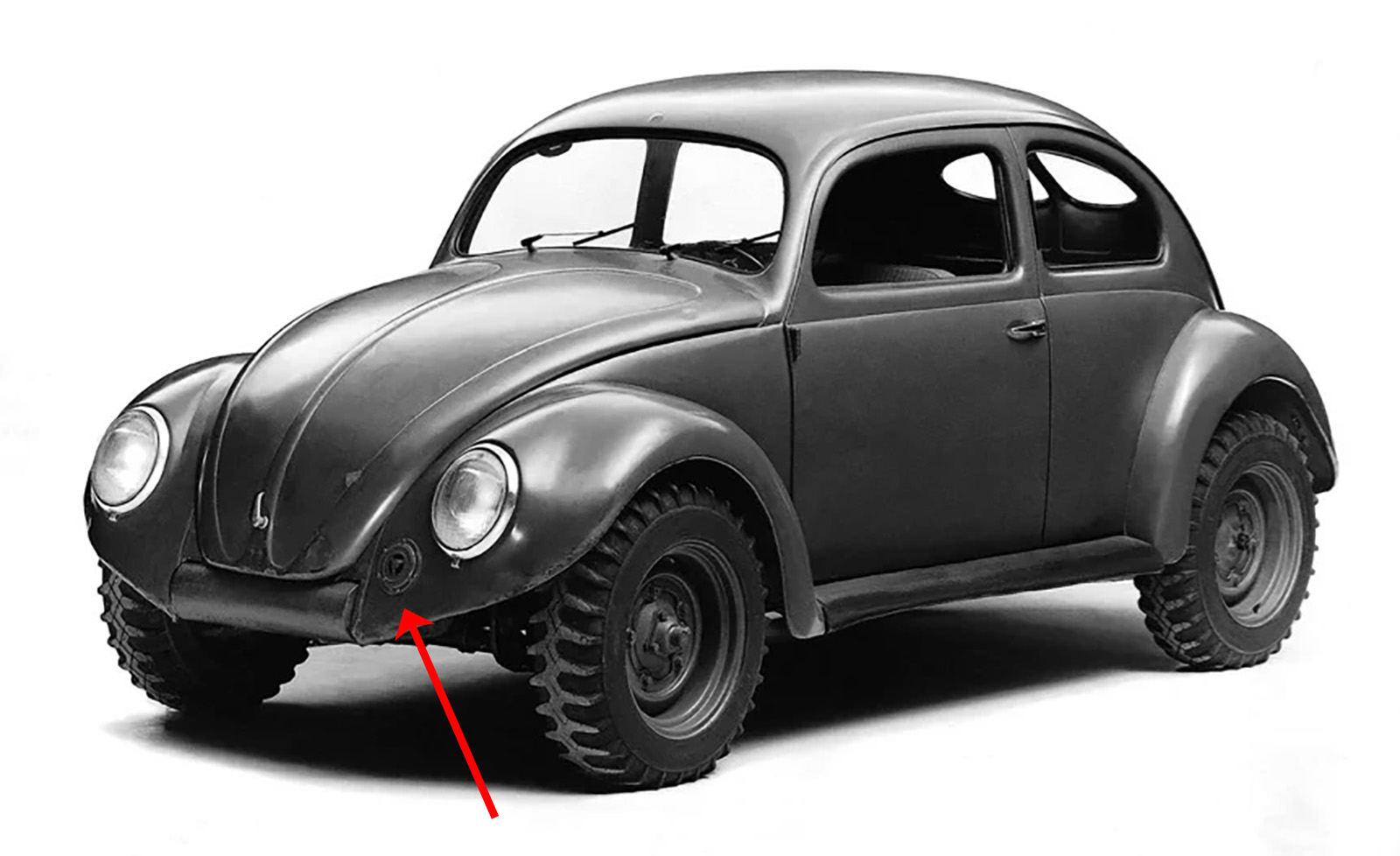The Volkswagen Beetle, despite its friendly, almost cartoonish design, was not a frivolous car. It was a car designed to be rational, basic transportation, and even if some of its design seems whimsical, just about everything was there for a purpose.
Those stampings on the hood that sort of resemble butterfly wings? And the stampings on the engine lid at the rear that are all swoopy? Those provide structural rigidity to those big panels. See, everything is there for a reason. This is especially true for the very early Beetles, which were very spartan and free of any excess trim or anything like that, because that’s just not what the car was about.
But, after the war, when the British took control of the factory, and the first civilian Beetles started to actually be built, while most were pretty much just like before the war, soon they realized they needed to fancy them up a bit for export, and so a bunch of chrome trim was added – chrome bumpers and headlight bezels instead of painted metal, for example, and the one part that I think may be the most frivolous. See if you can spot it up on that top image. Here’s a hint:

(photo: Hagerty)
See that? That’s a horn grille. Well, not exactly. Let’s go back a bit into Beetle horn placement history to understand. Here’s where the horn was on Beetles from about 1938 to 1948 or so:

(photo: VW Archives)
See that? The horn is just hanging out there, all proud and open, mounted to the driver’s side bumper bracket. No real attempt was made to integrate it into the design, it’s just there.
For some variants, like the 4×4 Kommandeurwagens built on Kübelwagen chassis, there was no bumper, but there was a cool front roller, and on those the horn was installed right into the fender:

(photo: VW Archives)
I always thought that looked pretty cool. But when it came to making an export-friendly Beetle in the late ’40s, it was decided that the horn should be behind the fender, and so they gave it a little round grille to beep through.
But that wasn’t enough! For symmetry, a second, dummy grille was added to the passenger fender, too. This started with the round ones I showed you up there and then became oval in 1953, and stayed that way until 1967. Here’s a nice famous example of the oval dummy horn grille:

(photo: VW)
That’s very much a dummy grille; there’s no horn behind the passenger side one, and in fact has a special blanking plate that goes behind it:

(photo: eBay)
I point this out because I think it’s the only actual fake thing on an original Beetle. Sure, there’s trim bits and decorative Wolfsburg hood crests and even optional dashboard flower vases, but the only thing that actually pretends to be something it isn’t is that silly horn grille.
I don’t know why it always irked me so much; I’d have rather the Beetle just had one, embraced the asymmetry with confidence. It would have been fine!
In 1968, when the Beetle went through its most radical “modernization,” both horn grilles were removed, and the horn just beeped away behind the fender, and it was pretty much just as loud. You can sometimes see the horn peeking out below, like on this 2003 Ultima Edicion:

(photo: VW)
The funny fake horn grille just always felt a touch out of character for the Beetle. But maybe I’m reading too much into it? The Beetle was always less austere than cars like, say, the Citroën 2CV, so maybe it can pull off one bit of fakery for design sake? Or maybe it’s just the whole idea of the fake vent that I’ve never really liked?
This is important, so be sure to get your thoughts on the record in the comments!









Yeah, and don’t forget to top off your blinker AND horn fluid!